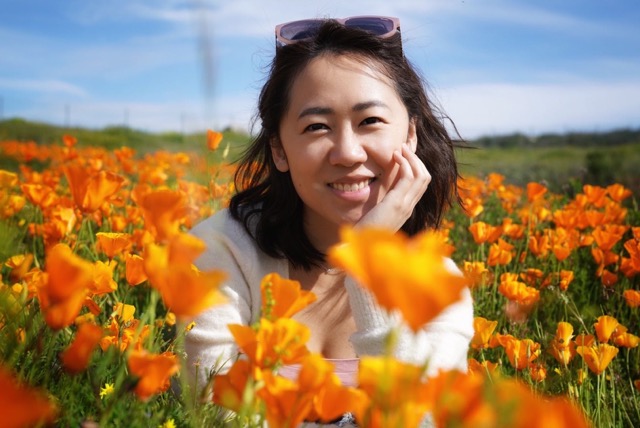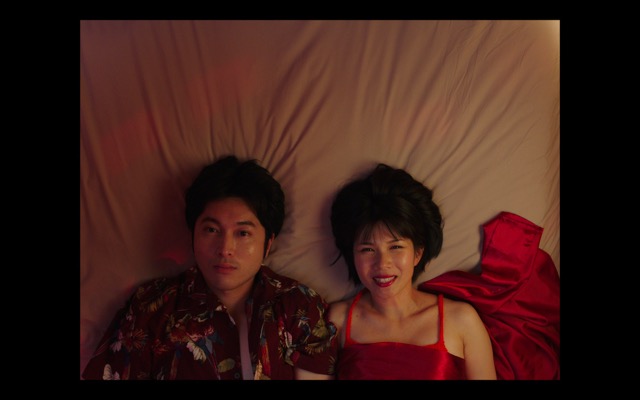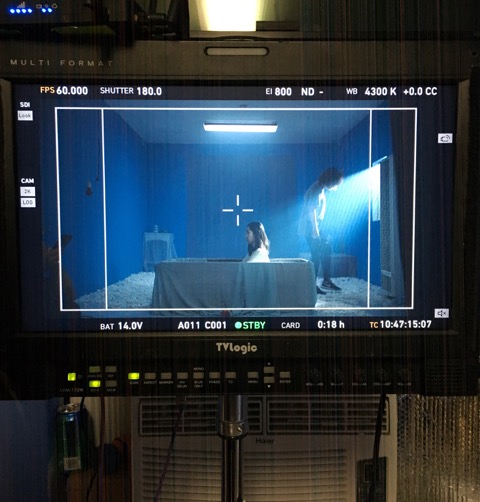
Tsugumi is poetry in film. Director Shiyu Hu is a remarkable filmmaker who bares her soul open for all to see in this production. The story of a mother-daughter relationship that is tested but proves to be bound lovingly, this film prompts us all to consider how time and circumstances tests that love. Remarkably, this film was shot before the pandemic and then re-cut and released after the lockdown; offering Shiyu a refreshed perspective on her own life and the film’s trajectory. To manifest this story, Shiyu Hu required a producer who recognized her vision and could enable its creation in an almost intuitive/prescient manner. Producer Cindy Wu proved to be the ideal fit from the very first meeting. Ms. Wu communicates, “We wanted the film to be contemplative, subtle, and introspective. It deals with complex themes of family, identity, and cultural heritage; approaching these subjects with a sense of nuance and sensitivity. What we didn’t want was for it to be overly/superficially sentimental or melodramatic. Shiyu and I are both very pleased with the final form of Tsugumi as a quiet and poetic exploration of human emotions and relationships.”

In addition to a win at L.A. shorts and screenings at the Big Apple Film Festival, Sydney Underground Film Festival, and others, Tsugumi was an official selection as such esteemed events as the Slamdance Film Festival, HollyShorts Film Festival, and The Block. The international appeal of this story is in the relatability of the parent/child relationship but there’s another aspect to the film that’s less easy to pinpoint. An appropriate label might be “chemistry.” While that certainly refers to the acting and cast, it also applies to the director/producer bond of Tsugumi. Ms. Wu divulges, “I was brought on first to this film, followed later by the DP, camera team, and others. When we delved into the concept of the story, it became evident to me that Shiyu is a very sentimental and sensitive director, with a strong artistic vision that needs time to unravel, even to herself. She enjoys the bond and needs the bond with the creative crew and most importantly the cast. She likes the freedom to experience, experiment, to try things on set, on location, with the actors in make-up and wardrobe.” Though rarely discussed, a producer’s ability to understand the director’s mindset and practices, perhaps even better than the director themselves, can make a massively beneficial impact on the entire production. Allowing for extra time in the schedule and realizing that some components may never even be explored; this can save time, money, and frustration on everyone’s part. Coincidently, there is a congruent them with the lesson of Tsugumi here; allow others to be themselves while understanding that you are connected by a greater force.

The story of Tsugumi is about the complexity of relationships; a mother who is still devoted to an unloving husband, a self-involved husband/father, and a rebellious young daughter who doesn’t understand where to turn for security. The lack of unrestrained communication is what creates conflict and pain among these characters. Achieving this on film is the very inverse of the work behind-the-scenes. Ms. Wu describes, “Shiyu and the cast co-depended on each other. This evolved and eventually made this film what it is. It is especially important for art-house movies because it can create a sense of authenticity and emotional depth in the performances. They often explore complex and nuanced themes that require a high level of skill and sensitivity from the actors, and a good director like Shiyu can help guide them in bringing their characters to life in a way that feels genuine and heartfelt.” Cindy worked hand-in-hand with Shiyu to select the cast of Tsugumi. Ms. Wu also was very involved with the script development and other aspects of preproduction. In every sense, she shared in sculpting the tone and feel of this film. Her responsibility for less “creative centric” moments like location scouting and finding solutions to inclement weather are not tasks she feels are of lesser importance. She confides, “Whether it’s repainting the interior of a set or creating a human flag-shield out of crew members on a particularly windy day to get a shot, filmmaking is team building. Every time I do this I get the feeling of committed creative professionals who are willing to strike down the odds and make something special. Those whom I work with make me proud of what we can attain together.” That sensibility shines through in Tsugumi.

Writer: Sharon Howe


Be the first to comment on "The Cultivation of Creative Cinema: Producer Cindy Wu of Tsugumi"